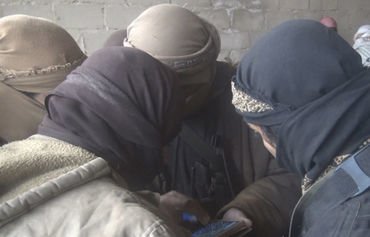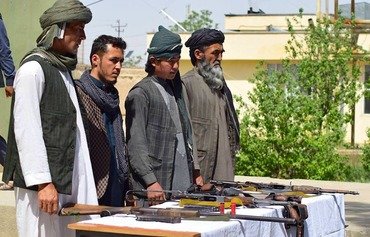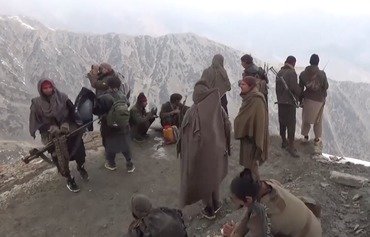The death of a top "Islamic State of Iraq and Syria" (ISIS) commander in Afghanistan has exposed the deep divisions that exist between the group's rival factions, and the dwindling fortunes of the terrorist group overall.
Coalition forces Monday (April 9th) confirmed they had killed Qari Hikmatullah -- also rendered Hekmat -- and his bodyguard in Faryab Province Thursday (April 5th).
Coalition and Afghan officials described Hikmatullah's undoing as a US airstrike preceded by Afghan-operated drones that followed him to his hideout.
He is the latest top ISIS leader to be killed, demonstrating the fate of foreign fighters coming to Afghanistan to join ISIS -- certain death at the hands of coalition and Afghan government forces.
Running out of leaders
Hikmatullah was a "native Uzbek" who previously belonged to other militant groups, including the Taliban, before joining ISIS's Khorasan branch (ISIS-K) in northern Afghanistan, according to the NATO statement.
He was a key leader, channeling external support and foreign fighters from Central Asian states into Afghanistan, said the statement.
Hikmatullah was involved in or responsible for "deadly terrorist attacks" and had been replaced by Mawlawi Habib-ul-Rahman, said the Afghan Defence Ministry Saturday.
The appointment of Rahman, another native Uzbek who had intermittent ties with the Taliban, suggests that the group is having difficulty replacing its leaders and is being forced to depend on foreign fighters with fluctuating loyalties, the NATO statement said.
The move led to immediate infighting among three rival factions of ISIS-K, split between foreign fighters from Syria and Chechnya, followers of Hikmatullah from northern Afghanistan and Afghan ISIS members from other parts of the country, said local Afghan government officials quoted by the New York Times.
Afghan government and coalition forces "killed Hikmatullah and they will kill any successors," said NATO Resolute Support Mission Commander Gen. John Nicholson, according to the NATO statement. "[ISIS-K] will be eliminated."
Afghan and coalition forces have ramped up air strikes and ground offensives against ISIS fighters in Jawzjan in recent months as the group seeks to expand its foothold in the country.

![Qari Hikmatullah, a top ISIS leader in Afghanistan killed in an airstrike last week, is shown in a picture dated April 5th. His death was 'a big blow' to ISIS in the north, say Afghan and coalition officials. [Photo courtesy of NATO]](/cnmi_di/images/2018/04/11/12215-1000w_q95-600_384.jpg)







To hell to prepare the suites at the lower levels for the reception of his masters and followers!
Reply1 Comment(s)